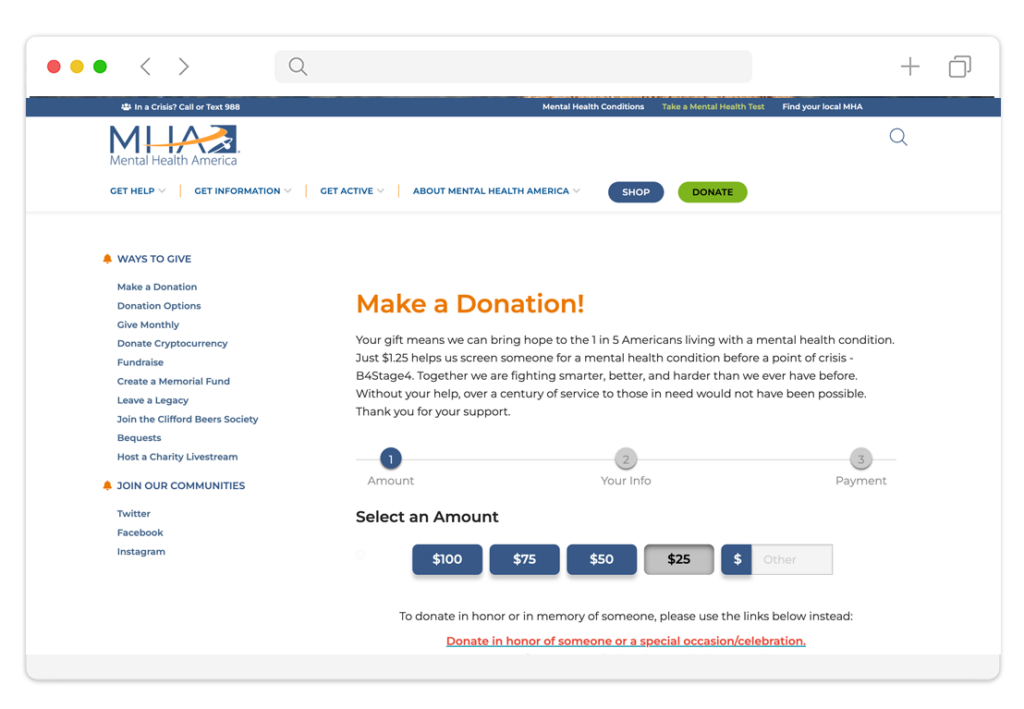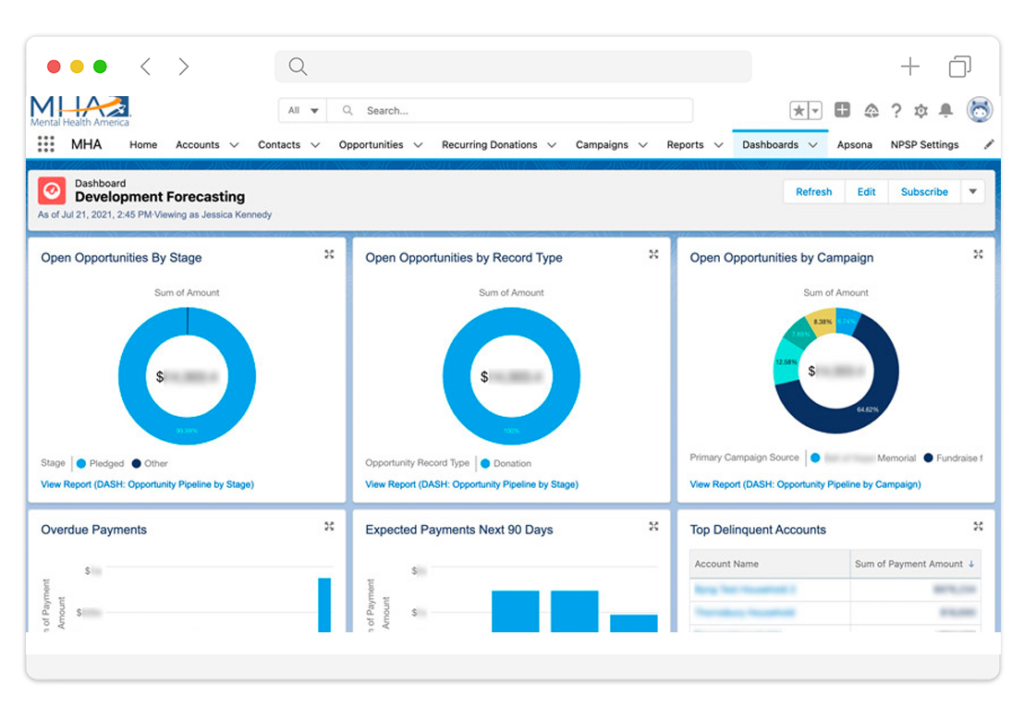Outdated and costly systems, low user adoption, underperforming business processes, and unhygienic data challenged Mental Health America.
MHA’s highly customized versions of LCRM and LO were no longer cost-effective and would become obsolete in June of 2022, necessitating a migration to a new CRM. The systems did not scale with the organization or complement other modernized platforms adopted across the organization.
Historically, MHA faced challenges with user adoption of LCRM, impacting the organization’s ability to leverage the CRM’s full potential. The technical debt incurred by the solution staying more often on the shelf instead of in the hands of MHA staff created an imbalance in ROI.
One of the significant pain points Mental Health America (MHA) faced was dealing with data that was generally unreliable, inconsistent, and duplicated. The poor user adoption of LCRM further compounded data integrity issues, disrupting many processes that relied on clean data, like decision-making processes that directly impact stakeholder engagement, ultimately furthering their mission of promoting mental health and wellness.
Fíonta conducted a comprehensive discovery process to understand Mental Health America’s (MHA) specific needs. Salesforce Nonprofit Success Pack (NPSP) was configured to cater to contact management, affiliate management, donor management, and external communications, aligning with MHA’s updated business processes giving MHA a 360-degree view of stakeholders for improved engagement.
Integration with key third-party systems like Classy, Eventbrite, Salsa Engage, and Shopify enhanced fundraising, event management, and online engagement. Data was efficiently deduplicated before migrating from LCRM to Salesforce, ensuring a clean and accurate dataset.
To ensure ongoing data hygiene, staff members were trained on best practices, and measures were implemented within NPSP to maintain data cleanliness and prevent duplication. These initiatives support MHA in making informed decisions, improving operational efficiency, and advancing its mission of promoting mental health and wellness.

Staff now have a 360-degree view of each stakeholder, enabling more effective engagement and personalized interactions.
MHA empowered staff with the tools necessary to meet expectations set by new business processes.
Critical systems like Classy, Eventbrite, Salsa Engage, and Shopify were integrated, enhancing MHA’s capabilities for fundraising, event management, and online engagement.
Mental Health America staff now have a 360-degree view of each stakeholder. Fíonta integrated several third-party systems for batch gift processing and document generation. Data was efficiently deduplified and transformed before migration from Luminate CRM to Salesforce. An emphasis on data hygiene in training and within the NPSP instance itself helps keep data clean and avoids duplication.

Steering all project facets like budget, schedule, scope, and risk management while collaborating with technical leads on risk handling, our project managers serve as the primary liaison with clients, offering frequent updates on project progress.
Senior strategic advisors who focus on business transformation with domain expertise in functional, platform, and integration architecture. Our technical architects articulate solutions and design trade-offs to clients, guide the delivery framework, and oversee complex solution design and development, ensuring technical integrity and soundness of the final product.
Focused on data analysis, schema design, data migration management, and complex data integration. They collaborate with clients and internal teams, handle data mappings, configure data sources, create scripts or apply tools to execute data migration and/or integrations, write test scripts, and document any deviations from original migration plans.
Dedicated to comprehending and documenting client business processes, identifying needs, and converting requirements into user stories. The business analyst works with technical leaders on the project to validate that the proposed solutions meet documented acceptance criteria and will satisfy project success metrics. Business analysts play a key role in planning for and executing user acceptance testing and training and change management when applicable.
Specializing in Salesforce and associated systems, our experts configure client instances following technical leads’ solutions, focusing on building functionality.


